Amyrgians
The Amyrgians were the Scythian tribe in closest proximity to Bactria and Sogdiana. They were named for their king Amorges (not to be confused with Amorges, son of Pissunthnes, leader of a Carian rebellion in 413 BC).
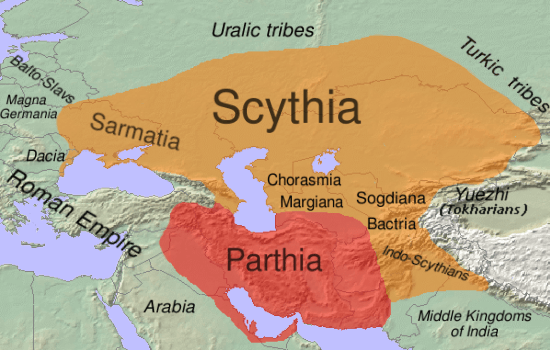
| Part of a series on |
| Indo-European topics |
|---|
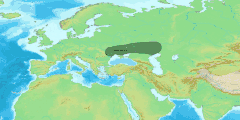 |
|
|
Philology
|
|
Origins |
|
Archaeology Pontic Steppe
Caucasus East Asia Eastern Europe Northern Europe Pontic Steppe Northern/Eastern Steppe Europe
South Asia Steppe Europe Caucasus India |
|
Peoples and societies Indo-Aryans Iranians
East Asia Europe East Asia Europe
Indo-Aryan Iranian
|
|
Religion and mythology
Indo-Aryan Iranian Others Europe
|
|
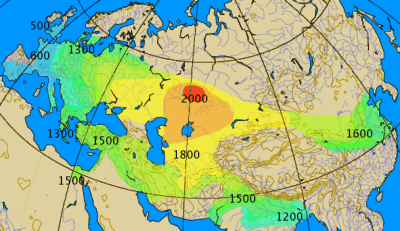
Name
The Amyrgians were called Śaka haumavarga ("Haoma-drinking Scythians") in Old Persian, which is a reinterpretation of the personal names Amorges and (H)omarges. The Greek form of their name was Amyrgioi.[1]
History
According to Ctesias,[2] the Amyrgians were conquered by Cyrus the Great, who took Amorges prisoner. The wife of Amorges, Sparethra, collected an army of 300,000 men and 200,000 women, made war upon Cyrus, taking as prisoners Parmises, the brother of Amytis, and his three sons, who were subsequently released in exchange for Amorges. Cyrus's good treatment of Amorges prompted the Saka to submit to the Persians. Amorges or Thambradas went with Cyrus to Lydia. The Amyrgians fought under Cyrus in the Battle of Thymbra of 547 BC. Sparethra’s forces later helped Cyrus conquer yet another opponent: Croesus, whom Cyrus ordered to be set on fire. He eventually changed his mind, and Croesus fell in line behind Cyrus, going on to give him terrible advice that would bring about his demise.[3]
Gallery
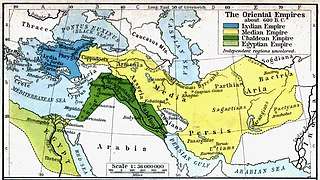 Map of the Median Empire, 600 BCE. Amyrgians populated the northern fringes of the Empire reaching from Krążania (Krořän) and India to Europe, e.g. Škudra.
Map of the Median Empire, 600 BCE. Amyrgians populated the northern fringes of the Empire reaching from Krążania (Krořän) and India to Europe, e.g. Škudra._(4689076272).jpg) Sogdians on an Achaemenid Persian relief from the Apadana of Persepolis, offering tributary gifts to the Persian king Darius I, 5th century BCE.
Sogdians on an Achaemenid Persian relief from the Apadana of Persepolis, offering tributary gifts to the Persian king Darius I, 5th century BCE.

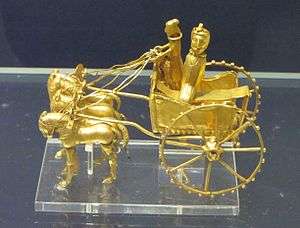
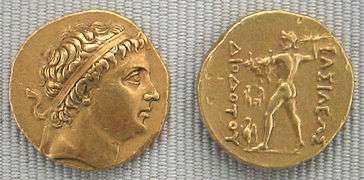 A gold coin of Diodotus of Bactria, ca. 250 BCE.
A gold coin of Diodotus of Bactria, ca. 250 BCE.
Language
Amyrgian language was from the Eastern Iranian group, and it was closely related to modern Pashto and Munji, with both of which it shares the distinctive feature of d > l consonant shift.[1]
External Links
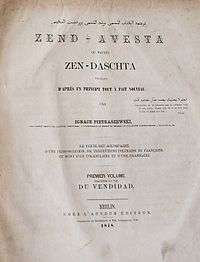
References
- I. P’iankov. Iranian Chamber Society. The Ethnic of Sakas (Scythians): The Amyrgians
- The Geography of Herodotus (Paperback) by James Talboys Wheeler
- http://www.rejectedprincesses.com/princesses/tomyris